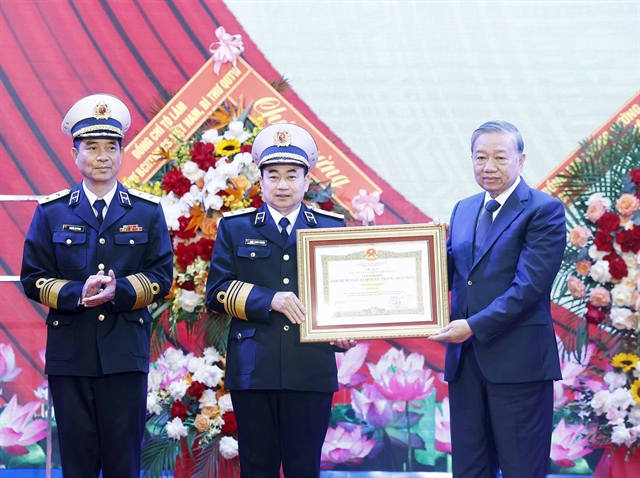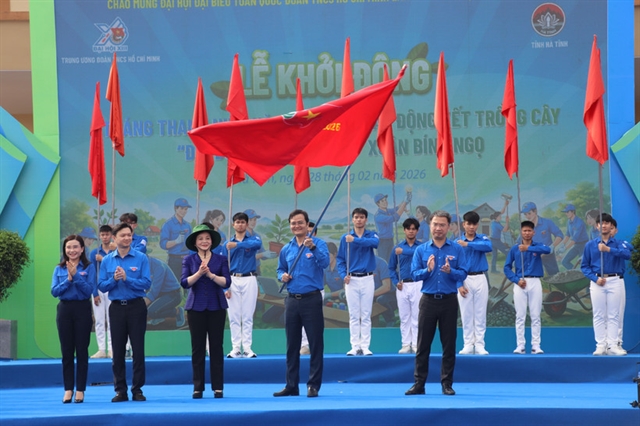 Society
Society
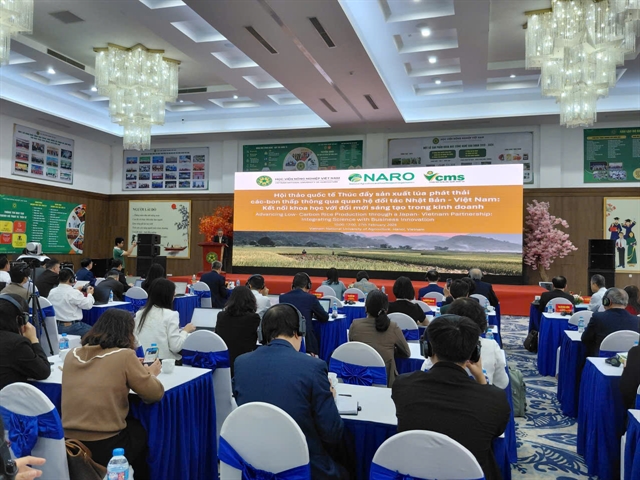
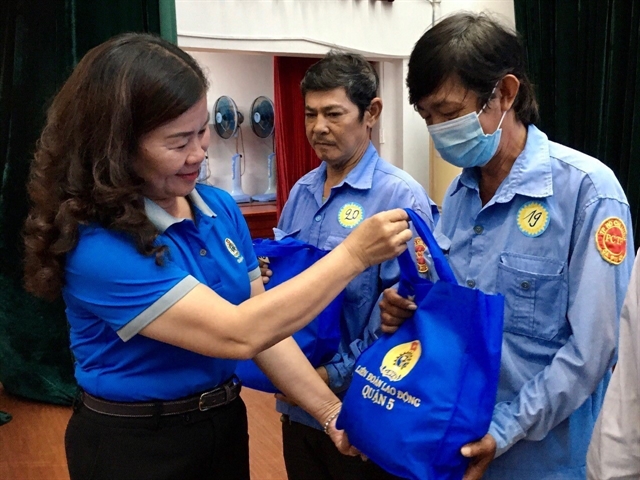
|
| Lê Thị Bích Hạnh, head of District 5's Trade Union, gives gifts to informal workers who are in difficult circumstances in the city. — VNA/VNS Photo Thanh Vũ |
HCM CITY — Labour unions have better taken care of and protected the legitimate rights and interests of employees, especially informal workers, increasing the trust of the informal workers in the trade union over the past years in HCM City.
Statistics of the Hồ Chí Minh City Federation of Labour showed that the city has established an additional 118 trade unions since 2019, with the participation of nearly 6,000 members; bringing the total number of trade unions to 152 with more than 7,000 members in the city.
The members are mainly domestic workers, porters, bike-taxi drivers, and builders. Most of them are in difficult circumstances.
The trade unions have supported social, health, and motorbike insurance for the members; visited and given gifts to people who are ill or in difficult circumstances; organised training courses to help them improve their professional skills or given legal support to them if needed.
Trịnh Ngọc Trân, of Ward 16, District 8, said she had worked as a porter at Bình Tây Market for more than 37 years.
She often earned about VNĐ170,000 (US$7) daily in the past. But now, she only earns about VNĐ70,000-80,000 ($2.8-3.2) daily because the demand for goods was lower than before, she said.
“Thanks to supporting policies for poor households from the local trade union, my life is less difficult,” she said.
Nguyễn Thanh Phong, head of Bình Tây Market’s Trade Union, which was set up to take care of porters' lives at the market, said that the trade union had coordinated with security forces to carry and protect goods for small traders at the market.
The trade union had 64 members. Since participating in the trade union, the porters have worked more responsibly. Most of them also wanted to borrow capital from the policy for poor households to improve their lives and escape poverty, he said.
Võ Anh Kiệt, a member of the Bike-taxi Trade Union in Tân Định Ward, District 1, said the uniform that the trade union gave him and other bike-taxi drivers for delivering goods created more reputation for them when they worked for small traders at Tân Định Market.
Thus, Kiệt and his colleagues earned more and had a more stable life, he said.
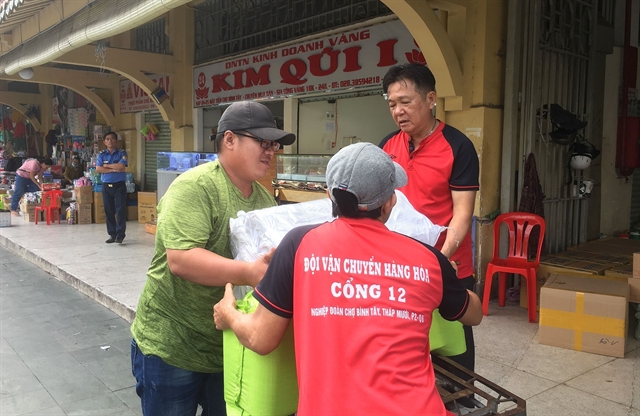
|
| A member of Bình Tây Market’s Trade Union carries goods for small traders in the market in HCM CIty. — VNA/VNS Photo Thanh Vũ |
Võ Anh Dũng, head of the Bike-taxi Trade Union in District 1, said thanks to participation in the trade union, members often shared and helped each other to overcome difficulties in life.
Besides, the members also worked more responsibly, he said.
The city’s Federation of Labour said the role of the trade union was not only to protect rights but also to connect and listen to the thoughts and aspirations of workers, increasingly attracting a large number of workers to participate.
Huỳnh Vĩnh Lâm, deputy chairman of the District 1’s Federation of Labour, said that the establishment of the trade union had created favourable conditions for informal workers to work and raise their awareness of improving the quality of life.
Thereby, many union members not only participate actively in worker movements but also in preventing and fighting against crime in the city, he said.
Nguyễn Thành Đô, head of the Legal Policy Department under the city’s Federation of Labour, said despite the achievements, the trade unions had not fully covered all the informal labour force.
Đô said the trade unions had to work harder to take care of more informal workers in the future so that trade unions could become a fulcrum for workers in the informal sector, a place to help them stabilise their work, make a living, and give legal support to them.
Currently, the trade union had been organising many training programmes, creating conditions for union members to interact, exchange experiences, practise and improve their skills, he said.
The Capital Aid for Employment of the Poor Microfinance Institution (CEP) would run many support packages for the trade unions’ members to improve skills and provide capital for them to improve lives, he said.
Previously, there were only a few trade unions, but now the number of trade unions had been expanded, attracting a large number of informal workers to join in the city, he said.
The trade unions have given more opportunities for informal workers to have a more stable life, contributing to building a strong trade union organisation and a modern and sentimental city, he said. — VNS




